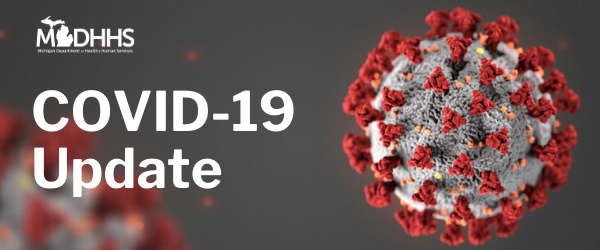
Whitmer Administration Working to Provide COVID-19 Emergency Relief for Veterans
Whitmer Administration Working with Michigan Counties to Provide COVID-19 Emergency Relief for Veterans
Gov. Gretchen Whitmer’s Administration is giving Michigan counties the option of using state County Veteran Service Fund (CVSF) grants directly for COVID-19 emergency assistance to veterans and their families.
The move, facilitated by the Michigan Veterans Affairs Agency (MVAA), will allow veterans in participating counties to make vehicle and home repairs, pay medical expenses, buy groceries and personal care items and meet other needs determined emergent. As part of this County Veteran Service Fund Emergency Relief (CVSF-ER) effort, the MVAA has also teamed with Midwest retailer Meijer to provide grocery vouchers to veterans in participating counties.
“We will do everything in our power to support Michigan’s veterans and their families who are struggling financially because of the global COVID-19 pandemic,” Governor Whitmer said. “We’re encouraging counties to use these state-appropriated funds to provide direct relief for these brave men and women to help them put food on the table for their families, make essential repairs to their homes and vehicles, pay doctor bills and meet other basic needs.”
As the state’s coordinating agency for Michigan’s more than 550,000 veterans and their families, the MVAA facilitates $6.4 million in CVSF grants to County Veterans Service Offices.
The emergency relief is available to counties that were previously approved for CVSF grants but now want to amend the grants to offer emergency relief directly to veterans. Some counties were slated to spend CVSF grants on veteran outreach and activities but were unable due to COVID-19 pandemic restrictions. The emergency relief is also available to counties that either did not qualify or chose not to apply for CVSF grants.
Counties have the option of administering the CVSF-ER grant themselves or having MVAA act as their fiduciary and administer the funds directly to veterans on their behalf.
“The County Veteran Service Fund Emergency Relief program highlights our commitment to ensure that the needs of our veterans and their families continue to be met during the COVID-19 pandemic and beyond,” said MVAA Director Zaneta Adams. “This program will get much-needed assistance directly into the hands of veterans, either through the County Veterans Services Offices or through the MVAA, which is available to veterans and their families 24 hours a day, seven days a week at 1-800-MICH-VET.”
Through the emergency relief effort, MVAA is teaming up with Meijer to offer $50 and $100 grocery vouchers to eligible veterans in counties that opt into the voucher program. Vouchers can only be used to purchase food, paper products, laundry and household cleaning products, health and beauty care items and pet food.
In counties where MVAA has been given permission to act as fiduciary, MVAA will distribute vouchers directly to veterans. In that case, MVAA’s limit on the vouchers is $500 (no more than $250 per month).
Meijer worked closely with MVAA to ensure CVSF-ER purchasing guidelines were met on the vouchers and is assuming the cost of printing the vouchers.
“Meijer is committed to enriching lives in the communities we serve, and that holds especially true in today’s new normal,” Meijer President and CEO Rick Keyes said. “We are pleased to partner once again with the State of Michigan to ensure that veterans and their families can purchase the essentials they need.”
Counties interested in applying for a CVSF-ER grant can contact the MVAA’s Karen Rowlader at RowladerK@michigan.gov or Marie Douville at DouvilleM@michigan.gov.
Information around this outbreak is changing rapidly. The latest information is available at Michigan.gov/Coronavirus and CDC.gov/Coronavirus.
###
About the Michigan Veterans Affairs Agency: Created by Executive Order in 2013, MVAA’s mission is to be the central coordinating agency, providing support, care, advocacy and service to veterans and their families. The agency works with the U.S. Department of Veterans Affairs, state departments, county agencies, and community and veterans service organizations throughout the state. The agency operates the Michigan Veteran Resource Service Center, a 24/7/365 call center in partnership with Michigan 211. By calling 800-MICH-VET (800-642-4838) veterans, family members and service providers can get information and access a comprehensive network of resources and services. Learn more at MichiganVeterans.com.



